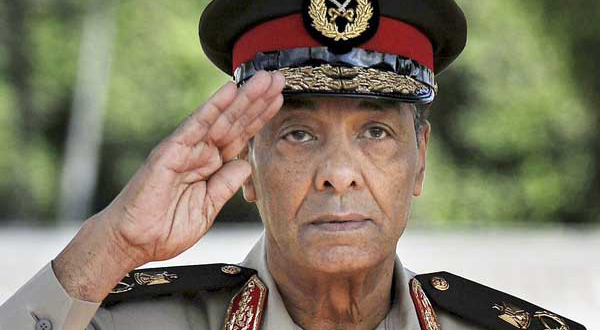 CAIRO: A committee formed of a number of counselors, law professors and one lawyer will start meetings Wednesday to amend Egypt’s suspended constitution.
CAIRO: A committee formed of a number of counselors, law professors and one lawyer will start meetings Wednesday to amend Egypt’s suspended constitution.
The committee, led by vice president of the State Council Tarek El-Beshry, had been assigned by Supreme Council of the Armed Forces on Monday to amend the constitution.
On Sunday, the army suspended the constitution and dissolved the Shoura Council (the Upper House of Parliament) and the People's Assembly (the Lower House).
The committee members met with the Commander-in-Chief and president of the Supreme Council of the Armed Forces and Defense Minister Field Marshal Hussein Tantawi and Chief of Staff Lt. Gen. Sami Anan, who is also the vice president of the council, on Tuesday, according to state-TV.
In addition to El-Beshry, the committee is formed of three law professors, three counselors and one lawyer; most of them are known for their constitutional law expertise.
"The committee has been assigned to amend the defective articles of the constitution which are 76, 77, 88, 93, 189, while article 179 will be eliminated," lawyer Sobhi Saleh, a committee member, told Daily News Egypt.
Sobhi is also a senior Muslim Brotherhood (MB) member and a former MP who was a member in the legislative and constitutional committee in the People's Assembly during the 2005-2010 round.
"The fact that an MB member was selected as a member in this committee means that Egypt has changed and that oppression is over … and that there is no marginalization of [certain groups] or dictatorship," Saleh said.
Sobhi added that the Brotherhood will not put forward a presidential candidate or seek a ministerial position. "We will [only] compete in … the legislative elections."
"I could have been concerned if there were no other [political] currents represented in the committee, which is not the case," said Amr El-Chobaki, senior researcher at Al-Ahram Center for Political and Strategic studies.
"The Brotherhood is an existing [political] current and it is normal that it is represented [in such a committee]," El-Chobaki told Daily News Egypt.
The committee members will hold periodic meetings to discuss specific how these articles will be amended.
“We will also tackle the clauses, terms and conditions related to constitutional articles that have to do with the parliamentary and presidential elections,” Atef El-Banna, constitutional law professor at Cairo University and member of the new constitutional committee, told Daily News Egypt.
“The Supreme Council of the Armed Forces is keen to hand over power to politicians following the 6-month transitional phase…then it will resume performing its main role of protecting the country of any external threats,” El-Banna added.
After the committee finalizes the amendments, a public referendum will be held within two months under full judicial supervision. The citizens will be able to vote using their national IDs.
El-Chobaki believes that at this point, constitutional amendments are quite satisfactory to the Egyptian people.
"At this stage, these amendments will allow democratic legislative and presidential elections," El-Chobaki told Daily News Egypt.
"This could be a step towards formulating a new constitution after the new parliaments are elected," he added.
El-Banna agreed with El-Chobaki.
“A new constitution requires a committee elected by the people to put it … which is not feasible in the time being, when we need to restore life in the country,” he said.
“We now have a specific mission that has to do with organizing the [country’s political life],” El-Banna added.
Article 77 of the suspended constitution allowed the president to seek re-election indefinitely. The opposition has frequently called for putting a two-term limit, as the case in democratic countries.
Article 88 called off the direct judicial supervision of elections, replacing it with the Supreme Electoral Commission. Legislative elections were mostly controlled by the interior ministry.
The opposition has always called for constitutional changes to deter election rigging, a widespread practice for many decades. The judicial supervision was eliminated from the constitution in 2007.
Article 93 dictates that only the People’s Assembly parliament can rule on the eligibility of its members. The ruling National Democratic Party (NDP) majority has used this to ignore court rulings invalidating election results.
Article 179, which will be eliminated, allowed the president to refer any terror related case to any judicial body, which gave him the right to use military courts.
Ousted President Hosni Mubarak had earlier announced the same constitutional amendments 11 days before he stepped down among other concessions he put forward in a bid to contain the escalating situation following the Jan. 25 Revolution.



